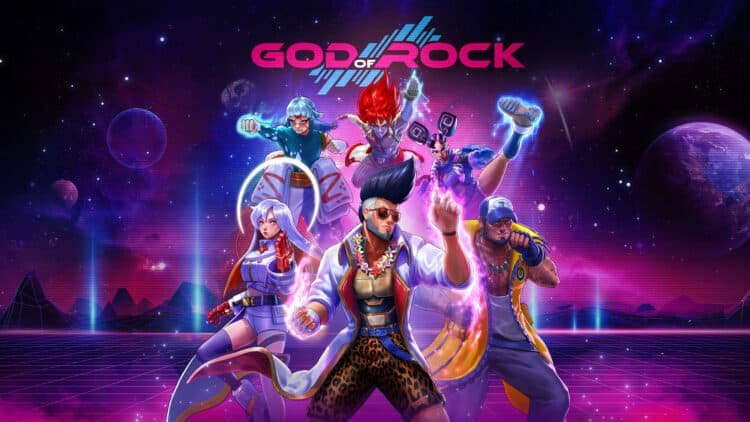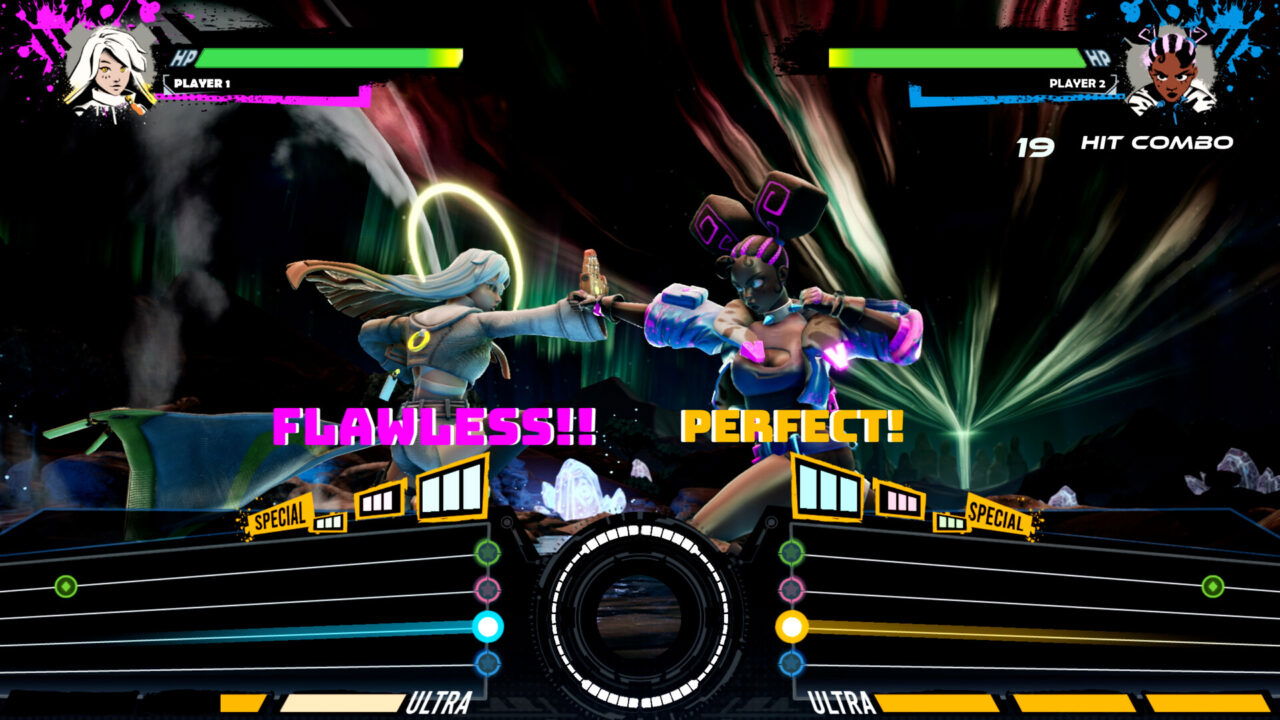God of Rock is an upcoming old-school music and rhythm game that looks like games such as Guitar Hero and Rock Band. But, once I had a chance to play the game, I soon realized that looks can be deceiving. On the surface, God of Rock looks simple, but once I picked up the controller, I realized it was much more. Wait. This fighting game? Ok, so it’s a musical fighting game; that’s a first.
Wait, you said this was a fighting game?
This is a fighting game, even if it doesn’t seem like it at first. The goal of God of Rock is to attack your opponent, perform combos, build up meter, then unleash devastating attacks until the opponent is down. Sounds familiar, doesn’t it? However, unlike traditional fighting games, where the combat has a broader view, God of Rock has you focusing on your magical space guitar, watching for notes that correspond to buttons on your controller, and then trying your best not to miss them while music is blaring in the background. It’s as if someone was watching that one scene from ‘Doctor Strange in the Multiverse of Madness,’ and was like, hey, this is a good idea.
There are four outcomes while doing this; Perfect for a perfectly timed press, great for an almost perfectly timed press, good for just hitting the button, and a miss. Missing a press is important, as missing any note not only causes you not to build meter and dish out a hit but also causes you to get smacked in the face and take damage, as there’s no blocking here.
Every note you hit builds your meter, while performing combos builds you even more. Scoring several perfect presses in a row will result in a flawless combo that cause you to build more meter. The basis here is the more you hit the notes correctly, you score hits, build meter, and you’ll have an advantage over your enemy. The meter plays an important part here, just like in a fighting game, as it lets you toss out EX, special, and ultra moves will playing. Building up meter, and unleashing powerful techniques is critical to taking your opponent down.
Get ready to Rock Off!
At first, I treated God of Rock like a simple rhythm game, which got my butt handed to me. This is a fighting game, pure and simple, and I failed to realize early on that I wasn’t required to hit every button that flew past the screen, as trying to do so can take the focus off the actual objective. Sure, I would have loved to smash each note, but doing so took my focus off the game, and my opponent didn’t suffer from the same issue, being that it was a CPU. I’m wondering how the experience between two humans will play out.
In the early access build I had access to, God of Rock featured several characters, all with a unique look and play style. They’re not so much different than what you’d find in a fighting game. All have access to a handful of special moves, that can be pulled off by performing a motion and the special move button. For example, the character called Hilde, had all the motions of a Street Fighter Shoto character (Ryu, Ken), which made her my preferred character to play with. Though, I found it ironic that while this game is played to the tune of music, there’s only one character in this preview that is actually musically themed.
Not completely sold
I’m not 100% convinced about God of Rock, at least in its early state. The gameplay felt fine, and the presentation, especially the music, was amazing. It just doesn’t feel natural like a fighting game should. Most of the gameplay is handled via the guitar, and that’s it. When it comes to a fighting game, you’re watching your opponent, paying attention to zoning, and playing the neutral game, where there’s none of this here. Sure, God of Rock has fighting game mechanics, but for someone who plays or has played fighting games for a good portion of their life, it just didn’t click completely for me. Honestly, it could be more of a “Me” thing than anything else.
Still, the concept of combining a fighting game with a music game has potential. Currently, it feels like more of an experiment that still needs some work. Despite that, we’ve seen some amazing games that took two genres, married them into something we would have never expected, and ended up rocketing to success. However, as this game will find itself stuck between two genres, it will be interesting to see how either of the two communities embraces the game, which will be key to its success.



